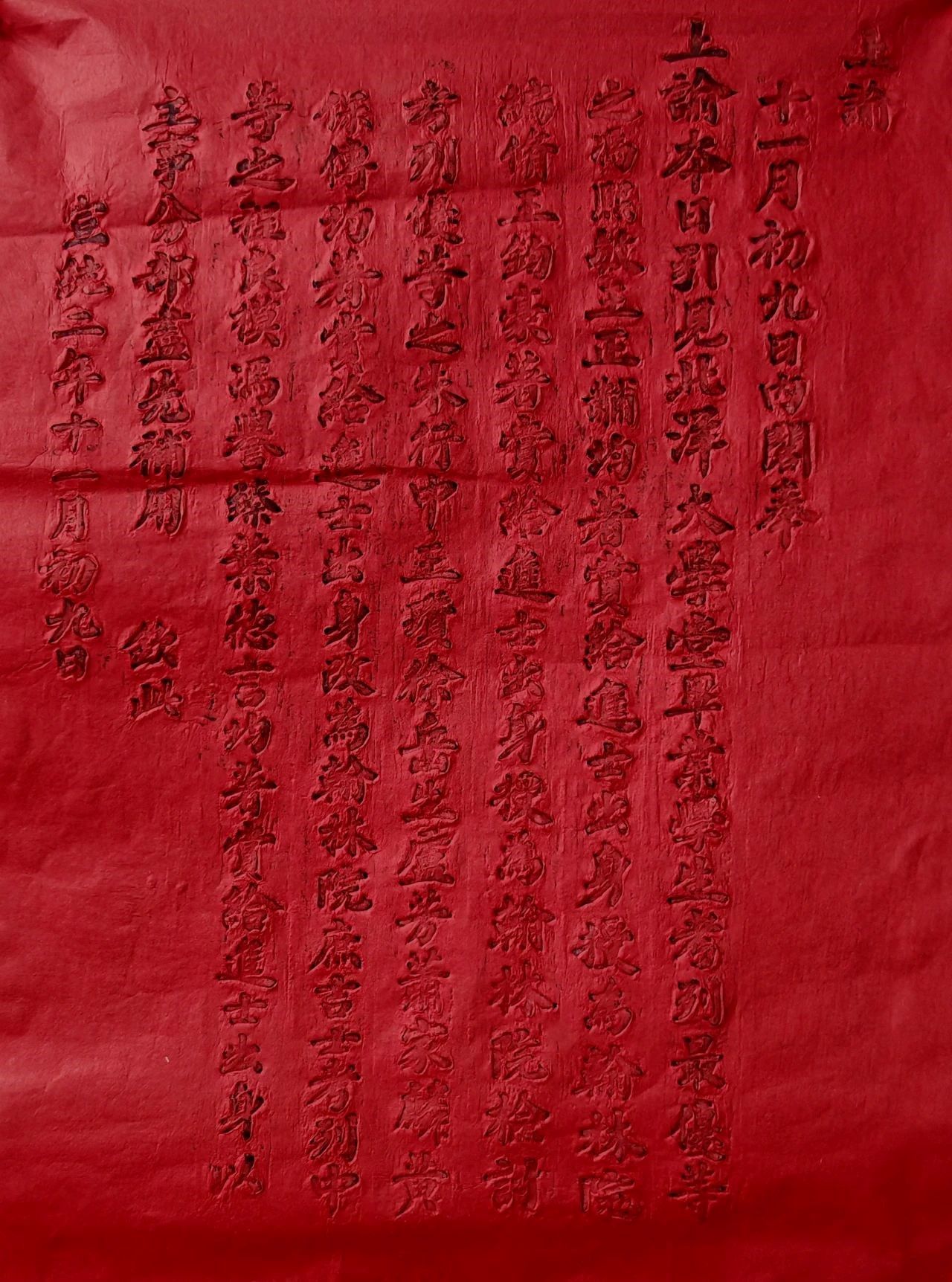Rubbing of Honor List of Successful Candidates in the Imperial Examination in Late Qing Dynasty Donated to Tianjin University

Recently, the Archives of Tianjin University received donation of a precious rubbing of the “Honor List of Successful Candidates in the Imperial Examination”. It is a valuable record of early graduates of Tianjin University (then Peiyang University) being granted the status of Jinshi (Jinshi was the highest and final degree in the imperial examination in Imperial China.) and appointed to official positions.
This rubbing was donated to former President Gong Ke of Tianjin university by Mr. Gong Wenbin, the inheritor of the intangible cultural heritage representative project of transmitted rubbings in Nanping City, Fujian Province. Former President Gong Ke then presented it to the Archives of Tianjin University.
The term “Honor List of Successful Candidates in the Imperial Examination” is closely related to the ancient imperial examination system. In ancient imperial examinations, there were three lists. The Honor List of Successful Candidates in the Imperial Examination was the announcement list of Jinshi issued by the imperial court. It was also named “Huang (Yellow) List” because it was written on yellow paper.
To attract scholars to study in new-style schools, before the abolition of the imperial examination system, on January 13, 1904, the Qing government formulated Guimao School Education System. It stipulated that “Those who achieved the highest scores in the examinations would be recognized as Jinshi and appointed as junior compilers and reviewers in the Hanlin Academy... Those ranked excellent would be recognized as Jinshi and appointed as Hanlin bachelors... Those ranked medium would be recognized as Jinshi and preferentially assigned to various departments as section chiefs... ”
Although the imperial examination system was abolished in 1905, in the following six years, the Qing government found solutions for candidates who originally aimed for the imperial examination path. Therefore, the conferment of the status of Jinshi continued for about six years.
Peiyang University was the first modern university in China which took “promoting education to strengthen the country” as its goal when it was founded, giving top priority to the needs of the country and striving to cultivate talents in machinery, mining, engineering, and law. Despite the extremely high difficulty of the examinations, the early graduates of Peiyang University were of high-quality. In the second year of the Emperor Xuantong’s reign (1910), the conferment rate of the status of Jinshi for the disciplines of civil engineering, mining and metallurgy reached 100%. Many of these graduates made outstanding contributions to the construction of China.
By Wei Xiaonan
Editor: Sun Xiaofang

